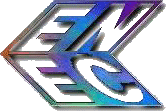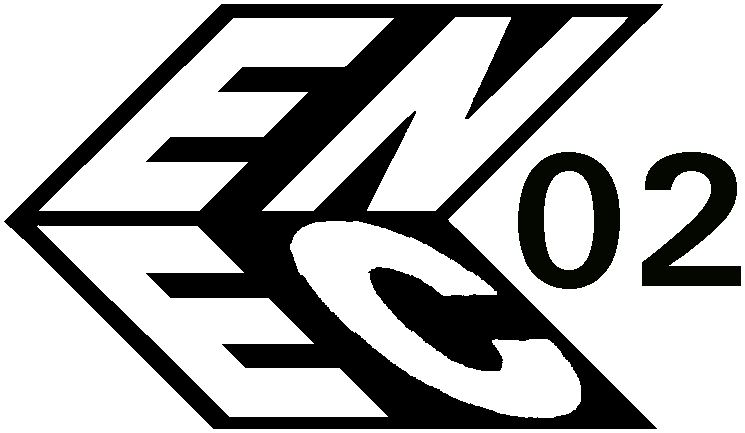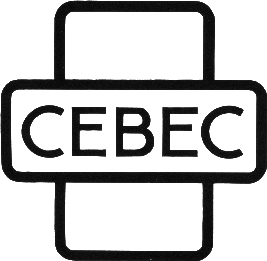|
|
|

The European Mark for Electrotechnology
|
General
ENEC is the abbreviation for European Norms Electrical Certification; the 02 code is exclusively used by
SGS Belgium - Division SGS CEBEC.
At the beginning, the ENEC mark was covering luminaries and their components; today the scope of the ENEC mark has been extended to also include
information technology and electrical business equipment.
The conditions, on the basis of which the use of the ENEC certification mark may be granted, have been established in an agreement between the National Certification Bodies (NCBs). An ENEC approval is recognized by all NCBs. In other words, one-time testing for electrical safety is sufficient.
Products that have received ENEC approval comply with the applicable European
regulation (Low Voltage Directive...). The test report and the ENEC Certificate can be used as elements of your technical file.

These are the major advantages of the ENEC certification mark. The ENEC regulation has been set up by the European
standardisation committee CENELEC (Comité Européen de Normalisation Eletrotechnique).
Procedure
The procedure for obtaining the ENEC 02 certification mark comprises three conditions:
- Product type testing
SGS Belgium - Division SGS CEBEC, which is an accredited Certification Body, tests the electrical safety
of a representative sample in accordance with the relevant European Norms (EN's). Among other things, this entails
evaluation of the protection against accessibility of live parts, temperature control, mechanical strength and leakage current.
SGS Belgium - Division SGS CEBEC only grants the ENEC certification mark when it has been established that
the product complies with the relevant EN's.
Generally speaking, type testing is carried out in the SGS Belgium - Division
SGS CEBEC laboratory. It
can also be performed (in whole or in part) on manufacturer's premises based on Supervised Manufacturer's Testing (SMT) or other equivalent CCA procedures.
- Acceptance of the
production process
The manufacturer must carry out a minimum set of routine tests as defined, per product category, in the ENEC
agreement. This also includes ensuring that the ENEC products are subjected to systematic quality checks throughout the entire production process.
For the luminaries, the quality system of the factory location must be in accordance with
EN ISO 9001:2000. A certification to that standard is not an absolute requirement. However, with a such a certification, the follow-up in the scope of the agreement (see 3.) will be limited to an absolute minimum.
-
SGS Belgium -
Division SGS CEBEC contract
If both the type test and the quality level of the production meet the imposed criteria, a contract pertaining to the use of the ENEC certification mark is concluded with the manufacturer. Agreements are made within this contract regarding the duration of the contract, market control, complaint procedures, costs, liability, etc.
It is also essential for the manufacturer to make a commitment to inform CEBEC prior to
any alteration in the ENEC certified products. In accordance with the related agreement in the CEBEC contract, the manufacturer confirms that it will only put products on the market that are consistent with the previously certified model.
The product only receives the ENEC 02 certification mark when it complies with all the prescribed requirements listed in conditions 1, 2, and 3. The CEBEC certification mark
may also be used jointly with the ENEC 02 certification mark.
The procedure for obtaining the ENEC mark entails the approval of the manufacturer whose quality system must comply with
EN ISO 9001:2000 standards (not required for shunt capacitors for lamps and information business equipment).

IMPORTANT DEVELOPMENTS
Background
Until the introduction of the ENEC Mark market access to various European countries had to be ensured by obtaining separate national certification marks for each country.
After the introduction of once-only-testing (Cenelec Certification Agreement - CCA -, 1973), manufacturers showed an increasing interest in having one certification mark for all European countries.
Start of the ENEC Mark
In 1993 CELMA (European Committee of Luminaires Manufacturers), together with the CCA-Group launched the ENEC Mark for all types of
luminaires, later expanded to encompass lighting components.
Growth of the ENEC Agreement
Since the start of the ENEC Agreement on October 5, 1993, the 25 participating Certification Bodies have issued licenses for
more than 30.000 products.
The mark has been registered and is protected against infringements by the participating organizations in all relevant countries.
Pan-European acceptance of ENEC
ENEC Mark means conformity to European Safety Standards and is accepted throughout Europe. The participating Certification Bodies operate so-called Operational Staff Meetings where uniform interpretation and application of the Standards are established.
A system of peer assessments and interlaboratory comparisons guarantees uniform working methods, results and quality level of the testing services.
Differentiating products with ENEC
ENEC provides both manufacturer, user and consumer with clear differentiation between third-party certified products and other products which are 'claimed' to comply. ENEC builds on highly valued and recognized national certification marks.
Marketing using both marks will ensure a smooth introduction in the market of ENEC products. The manufacturer may use the mark of the issuing Certification Body next to the ENEC Mark for this purpose.
ENEC has a clearly defined meaning which users and consumers will recognize, fully demonstrating conformity to European Safety Standards.
Information on ENEC certified products
All ENEC certified products are registered in one central database which provides up-to-date information to participating certification bodies, manufacturers, users/consumers and government authorities and can be accessed as they require.
Reliability assurance in the market
ENEC is a readily available operating certification system. The participating certification bodies operate according to European accreditation criteria (EN45000 series). The ENEC mark scheme not only comprises
type testing, but also yearly re-examination, market surveillance and inspection of the production to guarantee continuing compliance of the certified products.
Additional benefits to manufacturers
As ENEC demonstrates compliance with "harmonised" European standards
which confer a "presumption of conformity" with the corresponding
European directives, verified by an independent third party, the manufacturer/licensee is at the same time provided with supporting documents to enable
him to declare the compliance of its products with the relevant European
regulation and to affix the CE Marking on his products with complete confidence.
Whenever an ENEC marked product is disputed in court (e.g. regarding product liability legislation), the issuing certification body may assist the manufacturer in providing evidence that due care has been taken before
putting the product on the market.
ENEC in short
- ENEC is the European Mark for Electrotechnology demonstrating compliance with European Safety Standards.
- ENEC provides market acceptance throughout Europe.
- ENEC is administered and backed by the CENELEC Certification Agreement (CCA) Group of Certification Bodies, a highly competent and experienced group of organizations in the field of testing and certification of electrical products.
- ENEC is readily available and operating successfully.
- ENEC has one clearly defined meaning to users, consumers and market surveillance authorities.
- ENEC is monitored by an Advisory Board involving pan-European associations of manufacturers, consumers and certification bodies.
- ENEC involves participating organisations in each European country, providing competing services to manufacturers.
- The limited number of organisations and strict rules to which each member operates guarantee a consistent quality and the highest integrity level of the certification system.
Participating Certification Bodies
As far as SGS Belgium - Division SGS CEBEC is concerned, it's ID number is 02.
For other countries members refer to  www.enec.com.
www.enec.com.
For further information please contact:
SGS Belgium NV
Division SGS CEBEC
Avenue Frans Van Kalken, 9A/box 1
B - 1070 BRUSSELS (Belgium)
|
Phone:
|
+ 32 (0)2 556 00 20
|
|
Fax:
|
+ 32 (0)2 556 00 36
|
SGS
Belgium provides market access
|
|
|